Trio Wins Chemistry Nobel For New Form Of Molecular Architecture
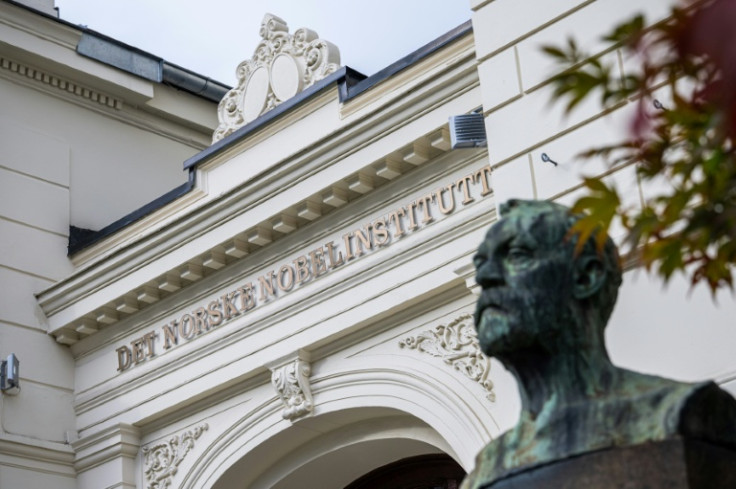
Three scientists won the Nobel Prize for Chemistry Wednesday for developing a method of designing molecular structures whose multiple uses include tackling climate change by capturing carbon dioxide and harvesting water from desert air.
Japan's Susumu Kitagawa, UK-born Richard Robson and American-Jordanian Omar Yaghi were honoured for their groundbreaking discoveries dating from the late 1980s to the early 2000s.
Thanks to the trio's discoveries, said the jury, chemists had been able to build tens of thousands of so called metal-organic frameworks (MOFs).
"Some of these may contribute to solving some of humankind's greatest challenges," it added.
It listed applications such as "separating PFAS from water, breaking down traces of pharmaceuticals in the environment, capturing carbon dioxide or harvesting water from desert air".
In 1989, Robson, 88, tested using the properties of atoms in a new way using copper ions.
"When they were combined, they bonded to form a well-ordered, spacious crystal," the jury said. "It was like a diamond filled with innumerable cavities."
While Robson, a professor at the University of Melbourne, realised the potential of his discovery the molecular construction was unstable.
It was Kitagawa, a professor at Kyoto University, and Yaghi, a professor at the University of California, Berkeley, who provided a proper foundation for the building method.
Between 1992 and 2003, working separately, they made a series of revolutionary discoveries.
Kitagawa "showed that gases can flow in and out of the constructions and predicted that MOFs could be made flexible," said the jury.
Yaghi created "a very stable MOF" and showed that it could be modified using rational design, giving it new and desirable properties," it added.
Reacting to the award, specialists in the field agreed on the importance of the work.
For Dorothy J. Phillips, president of the American Chemical Society, the most exciting application was the capture of carbon dioxide.
"We're in the midst of climate change, we really want to do things like track and reduce the carbon dioxide... that's a tremendous application," she told AFP.
Ross Forgan, a professor of materials chemistry at the University of Glasgow, told AFP that MOFs could be described as "solids that are full of holes".
"They have a ridiculously high storage-capacity inside them because they are hollow, and they can soak up other molecules like a sponge," Forgan said.
David Fairen-Jimenez, a professor who studies MOFs at the University of Cambridge, explained that they could also be assembled to make new "functional materials.
"It's very easy to imagine as a molecular building game," he added, making a comparison to "playing with Lego".
In an interview with the Nobel Foundation, Yaghi said he was "astonished, delighted, overwhelmed" on learning he had won the award.
He was in an airport switching flights when the Academy called him to announce the news.
Yaghi was born into a family of Palestinian refugees in Amman, Jordan.
"I grew up in a very humble home," he said. "And, you know, we were a dozen of us in one small room, sharing it with the cattle that we used to raise."
School provided a refuge for Yaghi, the Royal Swedish Academy of Sciences said in its statement. He moved to the US to study at the age of 15.
"So it's quite a journey," he said -- and science had allowed him to make it, he added.
"Science is the greatest equalising force in the world," Yaghi said.
The chemistry prize follows the physics award, which on Tuesday honoured Briton John Clarke, Frenchman Michel Devoret and American John Martinis for work putting the theory quantum mechanics into action.
On Monday, the Nobel Prize for Medicine went to Mary Brunkow and Fred Ramsdell, of the United States, and Japan's Shimon Sakaguchi for research into the human immune system.
The Nobel literature prize will be announced on Thursday, followed by the Nobel Peace Prize on Friday.
The Nobel consists of a diploma, a gold medal and a $1.2-million cheque, to be shared if there is more than one winner in a discipline.
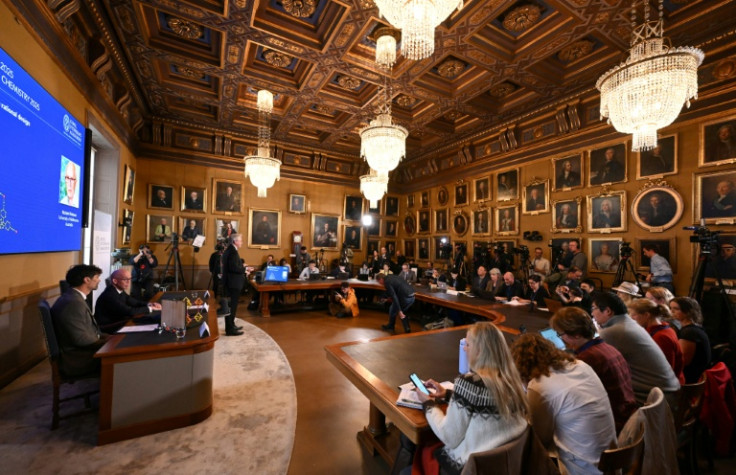
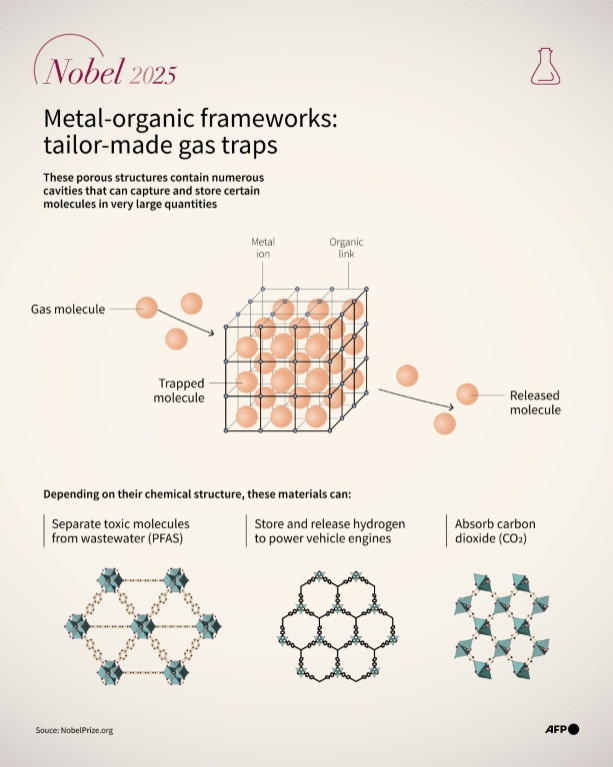
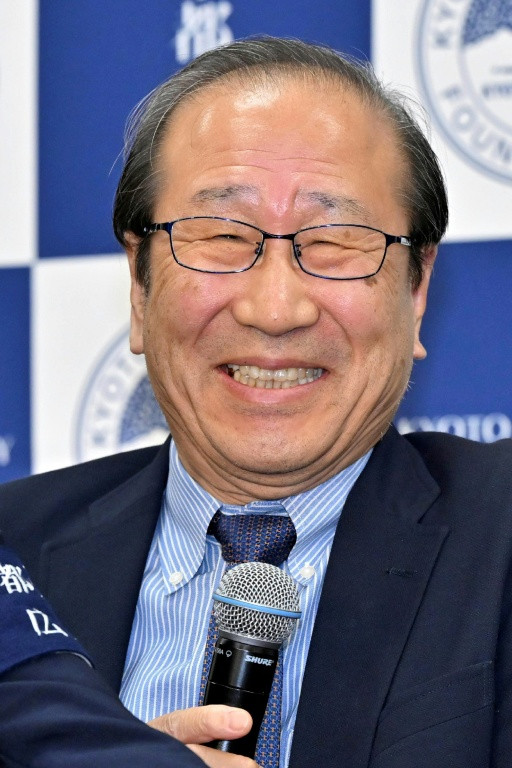

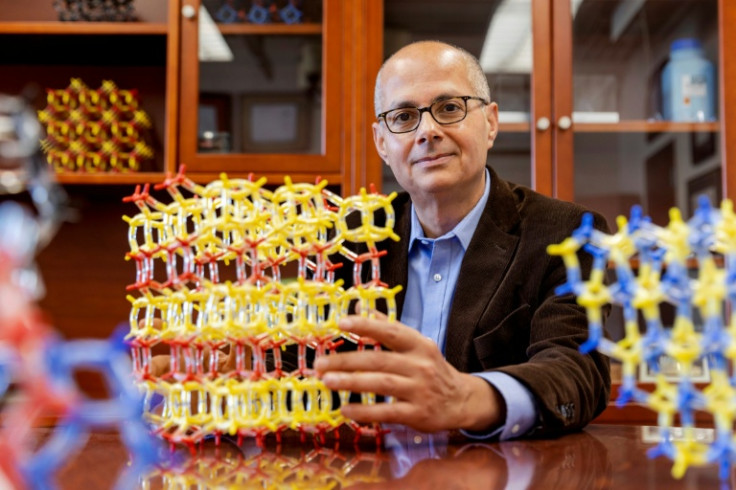
© Copyright AFP 2026. All rights reserved.




















